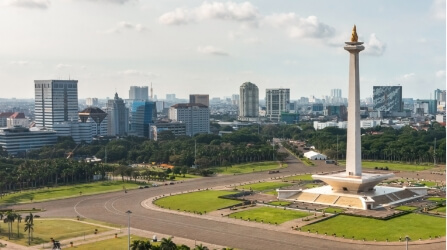For Singapore SMEs, the Market Readiness Assistance (MRA) Grant is often the gateway to overseas opportunities. Administered by Enterprise Singapore, the scheme offers up to 50% co-funding (capped at S$100,000 per new overseas market). It supports small and medium enterprises in critical activities such as overseas market promotion, overseas business development, and overseas market setup.
On paper, the market readiness assistance grant looks straightforward. But in practice, many MRA Grant applications are rejected, delayed, or reimbursed only partially. The culprit? Common, avoidable mistakes.
This article explores the top MRA Grant mistakes that SMEs must avoid—ranging from unclear eligibility to missing supporting documents—and shows how to successfully apply for and secure your funding through the Business Grants Portal.
Why Enterprise Singapore Rejects Some MRA Grant Applications
The MRA Grant is not just free financial assistance. It is designed to help SMEs strengthen their global expansion strategy and build sustainable market presence. Enterprise Singapore enforces strict requirements to ensure every approved grant creates measurable business impact.
Applications often fail because SMEs:
- Submit vague scopes of work
- Overlook regulatory compliance and trade compliance assessment
- Fail to include essential supporting documents
- Underestimate the application processing time
- Misunderstand the reimbursement basis of the scheme
The good news? Every one of these issues can be avoided.
Mistake 1: Not Clarifying Eligibility Before Your MRA Grant Application
The first mistake is failing to check whether your business qualifies before beginning your MRA Grant application. The scheme is intended for small and medium enterprises that:
- Are Singapore-incorporated with at least 30% local equity ownership
- Have a group annual turnover of less than S$100 million OR fewer than 200 employees
- Use third-party, Singapore-based vendors for all grant-supported activities
Applications are frequently rejected when SMEs:
- Exceed the overseas sales limit but still apply
- Engage non-compliant vendors
- Start projects before receiving the official letter of offer
Tip: Ensure you have a valid CorpPass account to access the Grants Portal. This is the only platform through which you can apply for the MRA Grant and later file your MRA Grant claim.
Mistake 2: Poorly Defined Project Scope in Your Market Readiness Assistance Grant
A common pitfall in many business grant applications is a lack of clarity in project scope. ESG cannot approve funding without clearly defined goals.
For example:
- “We want to explore a new overseas market.” (weak)
- “We will conduct a three-month campaign in Jakarta, participate in two virtual trade fairs, and secure three joint venture partners.” (strong)
Tip: Frame your scope around the MRA 3 categories of support:
- Overseas Market Promotion – PR, advertising, promotional campaigns, marketing collateral creation
- Overseas Business Development – business matching services, business development activities, hiring business development personnel
- Overseas Market Setup – incorporation, intellectual property applications, customs compliance, and other market entry activities
Mistake 3: Engaging Non-Compliant Vendors in Your Business Grant Application
A frequent error SMEs make is assuming any vendor will qualify. Under the MRA, funding only covers projects by Singapore-based, third-party vendors.
Mistakes include:
- Hiring overseas consultants (not covered under the grant)
- Using in-house staff for marketing collateral creation (ineligible)
- Overlooking ESG’s requirement for vendor pre-approval
Tip: Always select vendors who have experience working with Enterprise Singapore programmes. Cipta Mata, for instance, is an approved facilitator for market entry support in Indonesia.
Mistake 4: Weak Documentation and Missing Supporting Documents for the MRA Grant
Incomplete documentation is one of the most common reasons for rejection. Examples include:
- Missing supporting documents such as contracts or quotations
- No feasibility studies to prove market viability
- Lack of KPIs to track brand visibility or ROI
Tip: For a successful MRA Grant application, prepare:
- Detailed vendor quotations
- Clear project timelines, factoring in application processing time
- A structured budget with measurable outcomes
This shows ESG that your project is well-planned and accountable.
Mistake 5: Ignoring Regulatory Compliance and Trade Issues in Your Grant Portal Submission
Internationalisation is not just about sales, it requires compliance. Many SMEs overlook regulatory compliance and fail to conduct a trade compliance assessment before applying. Others forget to budget for customs compliance or legal costs for intellectual property applications.
Tip: Build compliance into your plan from the beginning. This aligns with ESG’s objective of promoting sustainable international enterprises rather than short-term ventures.
Mistake 6: Overlooking Timelines When You Apply for the MRA Grant
The MRA operates on a reimbursement basis, which means you must spend first and claim later. SMEs often make the mistake of submitting retrospective applications, which are automatically ineligible.
Other errors include:
- Starting projects before the official approval date
- Failing to submit the MRA Grant claim within deadlines
- Not aligning spending with the approved business grant budget
Tip: Account for the 6–8 week application processing time and keep internal deadlines. Treat the application like a structured project with milestones.
Mistake 7: Treating the MRA 3 Categories of Support Grant as Free Money
While the MRA Grant is generous, it is not free cash. It is a structured business grant designed to drive long-term outcomes. Misusing it leads to wasted opportunities, such as:
- Investing in campaigns with no sustainable market diversification
- Over-hiring business development personnel without a plan
- Pursuing activities outside the SME’s global expansion strategy
Tip: Align your project with long-term growth. For example, use the market readiness assistance (MRA) Grant to build local networks, invest in capability building, and strengthen partnerships in your target overseas market.
Mistake 8: Neglecting Post-Project Accountability and Your MRA Grant Claim
Securing approval is not the end. ESG requires accountability during audits. Many SMEs fail because they:
- Lose receipts and invoices
- Fail to demonstrate the impact of promotional campaigns
- Provide weak evidence of outcomes from overseas business development
Tip: From the outset, maintain a centralised record of all deliverables. Keep documentation for audit requirements and ensure your MRA grants reporting is accurate and timely.
How to Avoid These MRA Grants Mistakes Altogether
Avoiding mistakes comes down to three essentials:
- Preparation – Confirm eligibility, compile supporting documents, and align with grant requirements.
- Compliance – Cover all aspects of regulatory compliance, customs compliance, and trade compliance assessment.
- Execution – Deliver with measurable KPIs, maintain clear communication, and prepare for your MRA Grant claim at the end.
Why Work With Cipta Mata on Your Business Grants Portal Application
Cipta Mata provides end-to-end assistance for SMEs applying through the Business Grants Portal. Our support includes:
- Eligibility checks for SMEs looking to apply for the Market Readiness Assistance (MRA) Grant
- Preparation of all required supporting documents
- Vendor compliance to meet Enterprise Singapore requirements
- Execution of overseas market promotion, overseas business development, and overseas market setup activities
- Claims and audit support to ensure smooth reimbursement
By working with us, you avoid costly errors and maximise the financial assistance available through the MRA scheme.
Conclusion: Succeeding With Your Market Readiness Assistance (MRA) Grant
The Market Readiness Assistance (MRA) Grant remains one of the most impactful business grants for Singapore SMEs seeking international expansion. However, securing approval requires avoiding common mistakes such as weak project scoping, non-compliant vendors, missed deadlines, and poor documentation.
By preparing carefully, maintaining compliance, and partnering with the right experts, SMEs can successfully apply for and leverage this grant to build lasting market presence in new regions.
With Cipta Mata as your guide, your MRA Grant application won’t just succeed, it will lay the foundation for global growth.
Ready to expand into Indonesia with MRA Grant support? Contact Cipta Mata today to get started.











